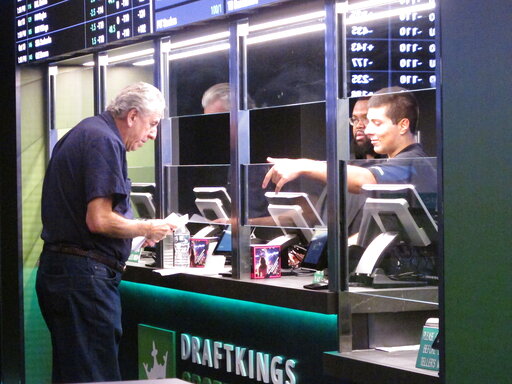Oklahoma Supreme Court rejects Stitt's gambling compacts
Fri, Jan 29, 2021
By SEAN MURPHY (Associated Press)

OKLAHOMA CITY (AP) - The Oklahoma Supreme Court has rejected gambling compacts that Republican Gov. Kevin Stitt negotiated with two Oklahoma-based Native American tribes, delivering the first-term governor another setback in his attempt to renegotiate the deals that allow gambling at tribal casinos.
In its decision on Tuesday, the court ruled the compacts with the Kialegee Tribal Town and the United Keetoowah Band of Cherokee Indians are invalid under Oklahoma law. The court determined that because Stitt negotiated different terms to those included in a model gaming compact approved by voters in 2004 and without approval of a joint legislative committee, the agreements disrupt "the proper balance between the executive and legislative branches."
The lawsuit was filed on behalf of Speaker of the House Charles McCall and Senate President Pro Tempore Greg Treat, both fellow Republicans who argued the governor overstepped his legal authority in reaching the deals.
The ruling wasn't a surprise, since the high court ruled in July that similar compacts Stitt signed with the Comanche Nation and Otoe-Missouria Tribes were also invalid.
Stitt had sought to renegotiate the gambling compacts with all of the Oklahoma-based tribes, seeking a greater share of revenue for the state and arguing that the compacts approved by voters in 2004 expired on Jan. 1, 2020. But a federal judge last year sided with the tribes and said the compacts automatically renewed.
Stitt said in a statement Wednesday that he looks forward to working with the joint legislative committee to review "the many compacts negotiated to benefit all 4 million Oklahomans."
Matthew Morgan, chairman of the Oklahoma Indian Gaming Association, said in a statement that he appreciates the "clarity and succinct wisdom" of the court's ruling.
Casino gambling is a booming industry in Oklahoma, with 130 casinos dotting the state, ranging from gas station annexes to resort-style hotel casinos, many of them in border communities, since voters approved a gambling expansion in 2004. The fees the tribes paid to the state totaled nearly $150 million last year, most of which was earmarked for public schools.
![]() Latest
Sports
Betting
News
Latest
Sports
Betting
News

.jpeg)
.jpeg)
.jpeg)
.jpeg)
.jpeg)
.jpeg)
.jpeg)
.jpeg)

